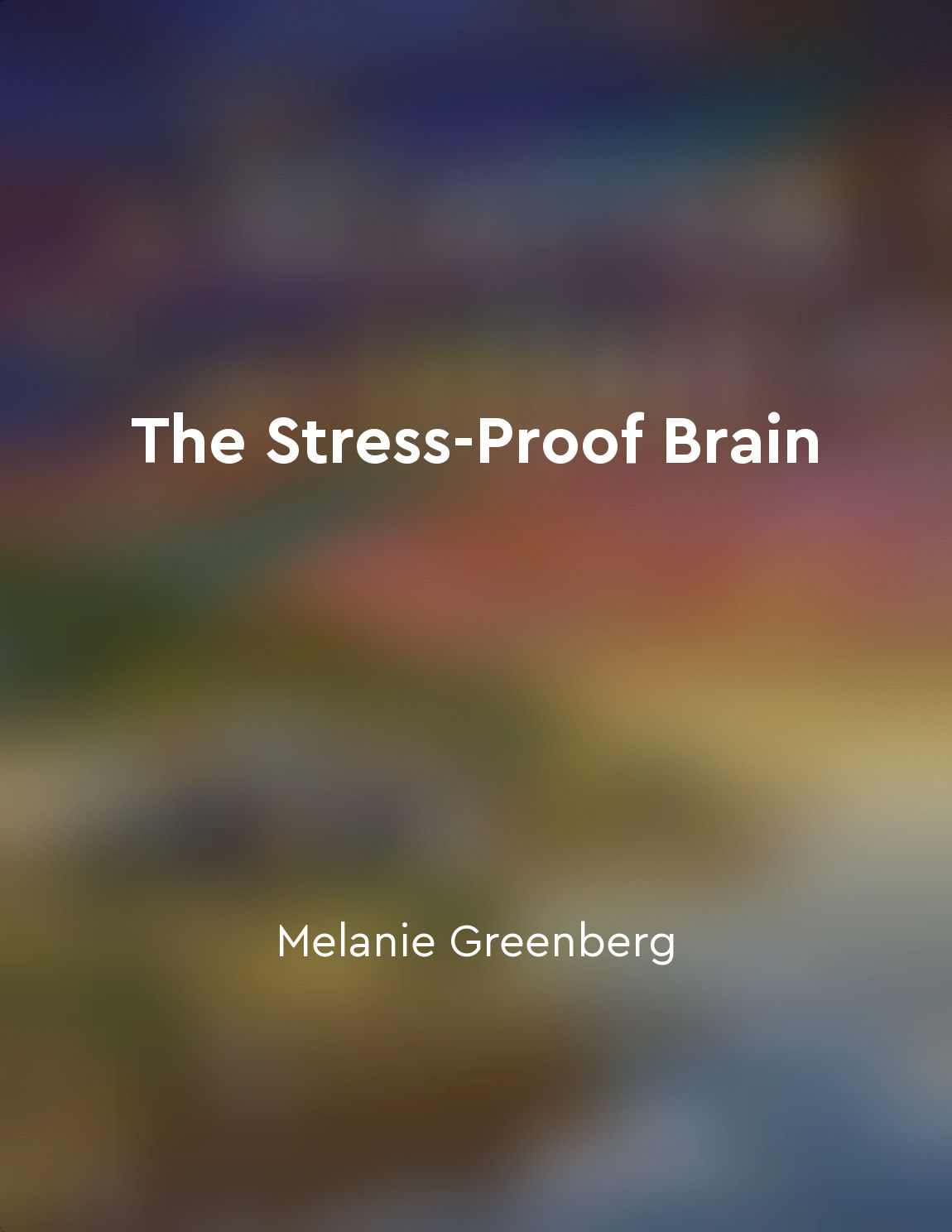Trauma can lead to physical symptoms and chronic conditions from "summary" of Trauma is Really Strange by Steve Haines
When a person experiences trauma, their body can react in a variety of ways. This can manifest as physical symptoms and chronic conditions that may persist long after the traumatic event has passed. These physical manifestations are not simply random occurrences, but rather a direct result of the body's response to trauma. The body's stress response system, known as the autonomic nervous system, plays a significant role in this process. During a traumatic event, the body's natural fight-or-flight response is activated, flooding the body with stress hormones such as adrenaline and cortisol. While this response is crucial for survival in dangerous situations, prolonged or repeated activation of the stress response can have detrimental effects on the body. Chronic activation of the stress response can lead to heightened inflammation, impaired immune function, and disruptions in bodily systems such as digestion, sleep, and cardiovascular health. Additionally, trauma can impact the brain in ways that contribute to physical symptoms and chronic conditions. The brain's fear center, the amygdala, can become hyperactive in response to trauma, leading to increased vigilance and hypervigilance. This heightened state of arousal can result in a range of physical symptoms such as muscle tension, headaches, and fatigue. Moreover, trauma can alter the brain's stress response pathways, making individuals more susceptible to developing conditions such as chronic pain, fibromyalgia, and autoimmune disorders. Furthermore, the body's response to trauma is not limited to the physiological realm. Psychological factors such as hypervigilance, anxiety, and depression can also contribute to the development and maintenance of physical symptoms and chronic conditions. The mind-body connection is a powerful force, with emotional distress often manifesting as physical pain or illness.- Trauma can have a profound impact on both the mind and body, leading to a complex interplay of physical symptoms and chronic conditions. Understanding this connection is crucial for effectively addressing the long-term effects of trauma and promoting healing and recovery. By acknowledging the holistic nature of trauma and its effects, individuals can take steps towards reclaiming their health and well-being.
Similar Posts
Cognitive flexibility is essential for mental growth
In order to thrive in an ever-changing world, individuals must possess the ability to adapt and think creatively. This characte...
Symbols hold meaning
Symbols, those mysterious carriers of meaning that connect the visible world with the invisible realm of the mind. They are lik...
Understanding and managing emotions leads to a more fulfilling life
Understanding and managing our emotions is a crucial aspect of our overall well-being. Emotions play a significant role in shap...
Practicing mindfulness can create new neural pathways
The idea that practicing mindfulness can create new neural pathways is a powerful concept that has the potential to transform o...

Journaling can help process and release stress
Journaling is a powerful tool that can help us make sense of our thoughts and emotions, especially during times of stress. When...
Sleep is essential for mental clarity
In the hustle and bustle of our modern lives, it can be all too easy to sacrifice sleep in favor of work or social activities. ...
Self persists through change
The idea that the self persists through change is a fundamental concept that has puzzled philosophers and scientists for centur...
Patty Duke's advocacy work for mental health awareness
Patty Duke has been a staunch advocate for mental health awareness for many years. She has used her platform and personal exper...
Not setting boundaries can have negative consequences on health
When we fail to set boundaries with others, we essentially give them free rein to encroach upon our physical, emotional, or men...
Recovery from trauma is a journey towards reclaiming one's body and mind
Trauma is not just an event that took place in the past; it lives on in the present. It can shape our emotional reactions, our ...

